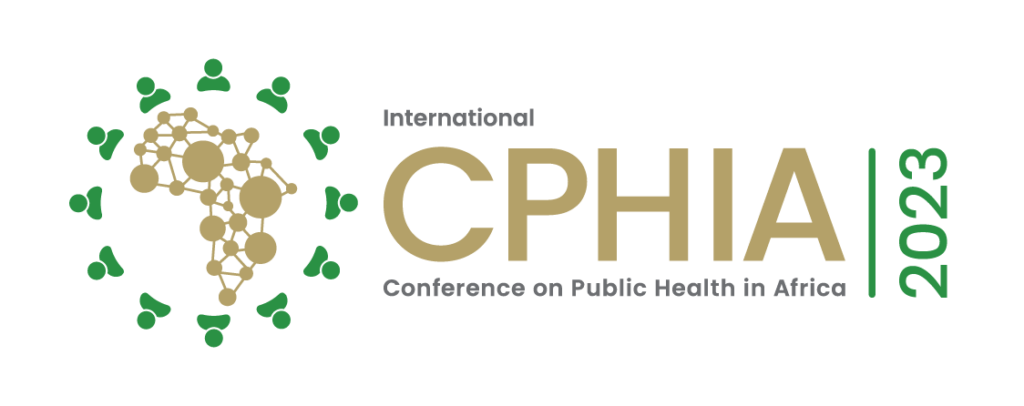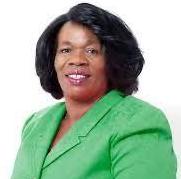Professor Nkandu Luo is a versatile, internationally acclaimed and well-respected leader, academician, researcher, publisher, statesperson with extensive experience engaging with world leaders and opinion drivers in health, research and development sectors. She has over forty years of high-level practical involvement in academic, political and public service in Zambia, within Africa and beyond. Has had regular professional engagement with international communities primarily around Health, HIV/AIDS, Infectious Diseases, Research and Gender.
She has excellent communication and presentational skills and can communicate to all fora. As an HIV/AIDS researcher activist, has been pioneer of often topical and sensitive programmes in HIV and AIDS, such as, setting up National Blood Transfusion services not only in Zambia but across Africa especially in the SADC countries, mobilizing around male circumcision, voluntary counselling and testing, Prevention of mother to Child Transmission etc. ` Her pioneering work dates back to the early eighties.
As an Immunologist, was presented with a patient suffering from Tuberculosis to analyse this patients immunological status and upon testing for HIV, the first ever case of HIV was identified and reported to the Ministry of Health in Zambia. Meaning, she was amongst the first four doctors who identified the first case of HIV in Zambia.
As an immediate response to the HIV epidemic, put in place a Short-Term Plan (STP), by setting up 33 blood screening centres through Zambia to ensure that all blood being transfused to patients was safe. This programme was the Birth of the National HIV/AIDS Control Programme and was later translated into a medium-term National HIV/AIDS Control programme and later into a fully-fledged National HIV/AIDS Control programme.
To further reduce HIV transmission, was also responsible for organising the separation of blood Transfusion from laboratory services by setting up the National Blood Transfusion Services. This involved construction of National blood transfusion centres across the country, organising blood collection, training of staff and blood testing for infections that are transmitted through blood transfusion such as HIV, Syphilis and Hepatitis B. Alongside HIV testing and mobilizing people to know their HIV/AIDS status, set up the Voluntary Counselling and Testing (VCT) centres throughout Zambia and later was part of the team that initiated the programme on Preventing of Mother to Child Transmission of HIV (PMTCT). As a way of ensuring a multispectral response to HIV and broader participation of stakeholders in the HIV/AIDS National Response the National AIDS Control Programme was transformed into an autonomous body, known as the National AIDS Council.
To ensure Laboratory services, were identified as important components of healthcare delivery, initiated the development of a laboratory Policy, establishment of a training centre for Biomedical Scientists in Ndola at the Ndola Central Hospital and initiated laboratory week aimed at sensitizing community on the importance of laboratory diagnosis of diseases. This programme is now a regular event.
To support the robust research activities on HIV/AIDS and related infections, that started taking place in the country especially in the health sector, provided leadership in putting together a Research and Ethics Committee in Zambia in order to ensure that international standards are adhered to in research practice.
She initiated several programmes and projects that are now National programmes, namely The National Blood Transfusion Services, the ZAMBART PROJECT 1990- 1996 in collaboration with the London School of Hygiene and Tropical Medicine, the National AIDS Council, the infectious Diseases control programme at the University Teaching Hospital. The ZAMBART PROJECT as programme is known for its success in responding to the impact of Tuberculosis in Zambia. The Infectious Diseases Control Project saw the construction of Virology, Immunology and TB laboratories in addition to the already existing Histopathology and Chemical Pathology Laboratories, Haematology Laboratory, Parasitology and Bacteriology Laboratories Organized the Infection Control Programme at UTH which included the training of the Infection Control Nurses. This is now a national programme being implemented in all hospitals throughout Zambia.
As a response to reports of emerging cancer cases, a Radioimmunoassay Laboratory, was established, as part of the diagnostic services, at the University teaching Hospital and organised the training of an oncologist in preparation for the setting up of the cancer centre at the University Hospital and raised the first ever resources for the design and plans of this Cancer centre. This centre has now transformed into a cancer hospital that is not only serving Zambia but other countries in the region.
The contributions to HIV/AIDS were not only recognized in Zambia, was respected professional internationally and as such, served on various professional bodies such advisory teams the Regional Director for World Health Organization (WHO) and the Global Reference Group on HIV/AIDS for WHO, Global Programme on AIDS (GPA) and subsequently UNAIDS and European Clinical Trials Partnership (EDCTP). Has served as a consultant for various international organisations, such as the UNDP, UNV, UNIFEM and subsequently UN Women, Eastern, Central, Southern Health Community (ECSA), UNAIDS, Global fund and USAID.
Realizing that HIV has a female face, joined hands with other African women, mobilizing women in 56 African Countries to respond to the impact of HIV on Women and Children by setting up African Country chapters of Society for Women and AIDS in Africa (SWAA) and initiated the setting up the local Zambian chapter, the Society of Women and AIDS in Zambia (SWAAZ). High prevalence rates of HIV were also being reported in special groups such as sex workers, drug users etc., an organization called the Tasintha Programme was set up in Zambia. The aims and objectives were to transform and promote safe sex among sex workers in Zambia though training and empowerment activities. This programme is a success story today.
As more information on the drivers of the HIV/AIDS became more apparent, such as Violence against Women and Child Marriage. Working with traditional leaders in Zambia a campaign against child marriage in Zambia and beyond was launched. This campaign is now taking place across Zambia.
All Sessions by Prof Nkandu Luo
Plenary: Track 4: For Women by Women: Access to adequate healthcare for young girls and women in Africa
Confirmed speakers:

